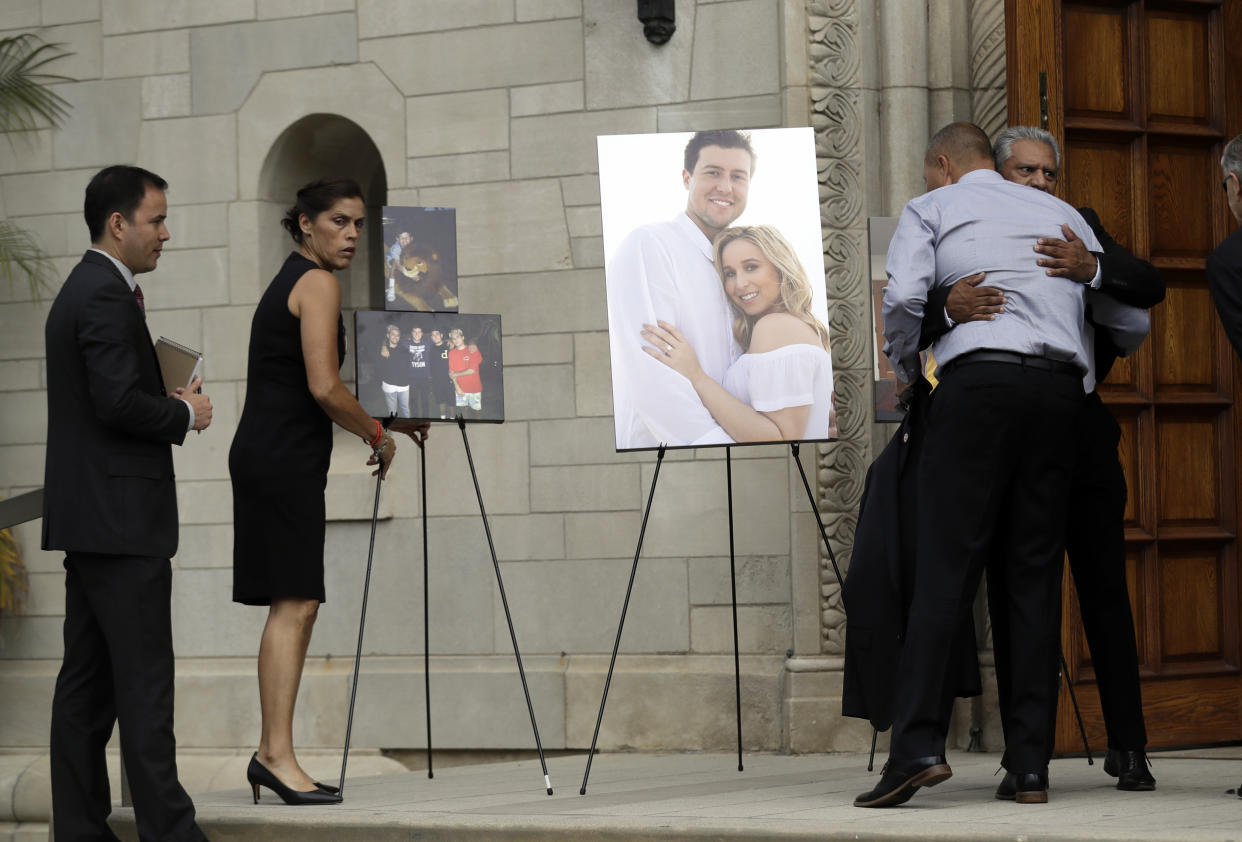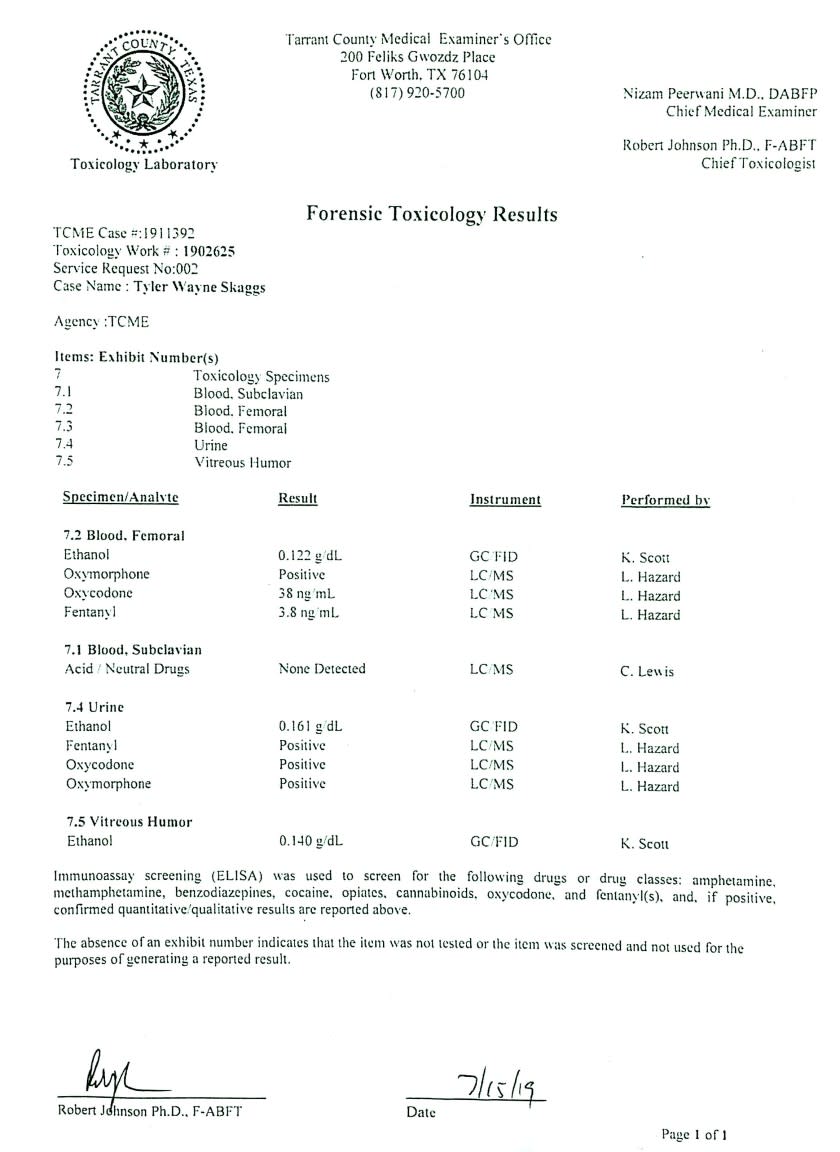Tyler Skaggs another casualty of America’s opioid epidemic

That 27-year-old Tyler Skaggs died in a room so far from home, in a room down the hall from his best friends, alone, may for a moment fit a national health crisis with a ball cap, and give it a fastball and a baseball card.
That is only today’s character. Yesterday, it slung a guitar over its shoulders and leaned into a microphone. The day before that, it drove a route or swung a hammer or balanced a spreadsheet or got the kids off to school. Tomorrow, it’ll sell insurance or run for office or fix cars or audition for a part in a commercial. Or fill a newspaper rack with stories about how fentanyl and other opioids and painkillers are drowning so many people.
But, today, it stands 6-foot-4 and goes about 225. It is strong and athletic, young and wealthy and famous. Today it grins and honors its mother, who raised the boy with a sense of humor and toughness, and it shines in the reflection of a new wedding band, and it sings along with a silly song on a radio, and it drags with it a sport, a franchise, a group of men who wore the uniform with him and the people who wish them to be heroes.
Today, it is Tyler Skaggs, a nice and talented kid from Santa Monica, California, who died two months ago, according to the Tarrant County (Texas) Medical Examiner’s Office, because he’d ingested fentanyl, oxycodone and alcohol, then choked on his own vomit. Today, it had everything going for it, it seemed, and now there are questions about the pain, about what hurt and for how long, about the treatment for the pain, about the people in charge, about how it all became so complicated and ugly and sad.

The plague that is opioids, that is the synthetic and powerful (and often illegally obtained) fentanyl, that kills tens of thousands of Americans by overdose annually, was a sports problem, a baseball problem, a Los Angeles Angels problem, because it is a societal problem. Today, it has a name. A story. A cause of death. It has a young man it knows and cares for in a hotel room, a toxicology report with fentanyl and oxycodone in it, a blood alcohol content 50-percent higher than what is regarded as legally impaired, and a perception that that young man could not defend himself against what was in his own body.
Skaggs’ family responded in a statement that read:
“We are heartbroken to learn that the passing of our beloved Tyler was the result of a combination of dangerous drugs and alcohol. That is completely out of character for someone who worked so hard to become a Major League baseball player and had a very promising future in the game he loved so much.
“We are grateful for the work of the detectives in the Southlake Police Department and their ongoing investigation into the circumstances surrounding Tyler’s death. We were shocked to learn that it may involve an employee of the Los Angeles Angels. We will not rest until we learn the truth about how Tyler came into possession of these narcotics, including who supplied them. To that end, we have hired attorney Rusty Hardin to assist us.”
The Angels released a statement:
"Tyler was and always will be a beloved member of the Angels Family and we are deeply saddened to learn what caused this tragic death. Angels Baseball has provided our full cooperation and assistance to the Southlake Police as they conduct their investigation."
And Major League Baseball said it would investigate, particularly as to the allegation that an Angels employee could have played a role in the outcome.
These are important questions. Twenty-seven-year-old men are not supposed to die. Debbie Skaggs’ son should not have died. Carli Skaggs’ husband should be home by now. Mike Trout’s teammate, his friend, should have woken up the next morning.
Instead, there is this, an epidemic that came for them, that took their Tyler. Perhaps this restarts a conversation about how the game takes care of its own, how it might drive them too long and too hard. Perhaps this is about one young man and his bad luck, or his unfortunate choices, or his pain, and how any of it could result in an accidental overdose. Perhaps this convinces another young man, a young woman, anyone, that the road is too dangerous.
Today, however, today Tyler Skaggs is dead of that accidental overdose, dead by the tendrils of a national health emergency, gone because those many thousands now include him. It does matter how he died. It does matter why. It is not enough to know and mourn that he is gone, to know and live with the ache of that, any more than it is enough to assume today’s Tyler Skaggs won’t be tomorrow’s somebody else.
More from Yahoo Sports:


